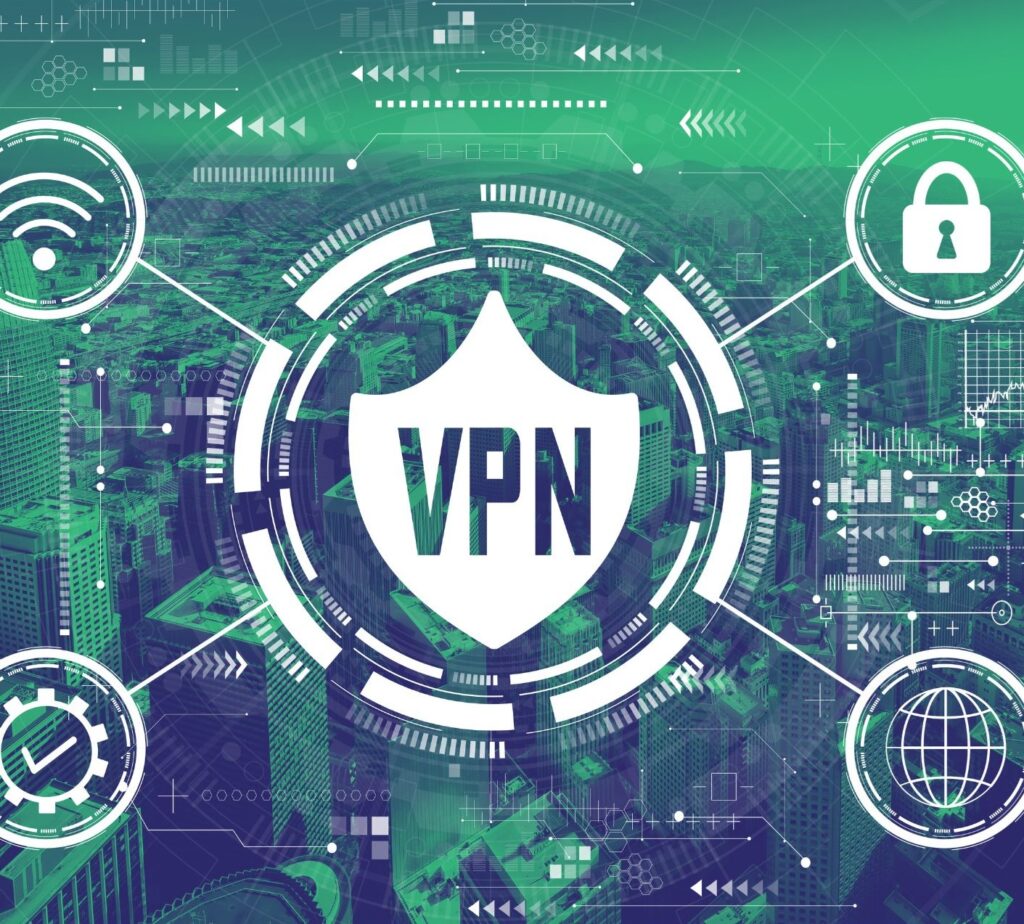In the digital age, where online privacy and security are increasingly under threat, Virtual Private Network (VPN) is becoming an indispensable tool for every Internet user. In this article, we explain what a VPN is, how it works and how you can use it to secure your Internet connections.
Table of Contents:
- What is a VPN?
- How does a VPN work?
- Advantages of using a VPN
- How to choose a VPN?
- How to use a VPN?
- Potential drawbacks
- Frequently asked questions
What is a VPN?
Basic VPN functions
A VPN (Virtual Private Network) is a technology that creates a secure and encrypted connection over a less secure network, like the Internet. A VPN hides your actual location by changing your IP address to that of the VPN server, providing greater online privacy.
How does a VPN work?
Data tunneling
VPNs use special tunneling protocols such as PPTP, L2TP, OpenVPN, or IPSec to create a secure “tunnel” through the Internet. This technology allows private data transfer between your device and the VPN server, isolating it from external access and potential threats. As a result, users can safely use public Wi-Fi networks, confident that their data is protected from interception by unauthorized parties.

Encryption
Data encryption is a key feature of VPNs, ensuring that information sent over the Internet is unreadable by third parties. VPNs use advanced encryption algorithms, such as AES-256, which effectively protect data from interception. Even if a cybercriminal intercepts this data, without the proper encryption key, the information will remain useless and unintelligible, significantly increasing online privacy and security.
Advantages of using a VPN
Privacy and anonymity
Using a VPN allows you to hide your identity and location, which is extremely useful, especially when connecting to public Wi-Fi networks. The VPN masks your IP address, turning it into the address of the VPN server, making your actual location and data harder to track by third parties, providing greater privacy and anonymity online.
Data security
The VPN adds an important layer of data protection, keeping data safe from hackers and cybercriminals. By encrypting the connection, even if the data is intercepted, it is encrypted and useless to the attacker. This not only protects sensitive information, but also increases security when using the Internet on less secure networks, such as public ones.
Unlocking content
A VPN allows access to content blocked due to geographic restrictions, which is especially beneficial for those traveling or living in countries with Internet censorship. This allows users to freely access a variety of content, including streaming media, websites and services that may not be available in their actual geographic location.
How to choose a VPN?
Factors to consider
There are several key factors to consider when choosing a VPN:
- Privacy and logging policy: Make sure the VPN provider does not keep logs of user activity.
- Encryption: Look for a VPN with strong encryption, such as. AES-256.
- Servers and locations: More servers and locations mean better access and speeds.
- Connection speed and stability: Test different services to see which one offers the best connection.
- Device compatibility: Make sure the VPN supports all your devices.
How to use a VPN?
Installation and configuration
- Service selection: Based on the factors mentioned above, choose a VPN.
- Download and installation: download the VPN app and install it on your device.
- Configuration and connection: Configure the VPN according to the provider’s instructions and connect to the selected server.
Potential drawbacks
Reduction in connection speed
Using a VPN can slow down your Internet connection due to data encryption and traffic routing through VPN servers.
Legal and regulatory issues
- Legal restrictions: In some countries, VPN use is restricted or banned.
- Regulations: Watch out for regulations on VPN use in different jurisdictions, especially if you use a VPN to unblock geo-restricted content.
Frequently asked questions
1. is it legal to use a VPN?
In most countries, yes, but there are exceptions. Always check local laws.
2. does a VPN guarantee anonymity?
A VPN greatly increases privacy, but does not provide 100% anonymity.
3. can I use VPN on all devices?
Most VPN providers offer applications that are compatible with different operating systems, allowing them to be used on multiple devices.


